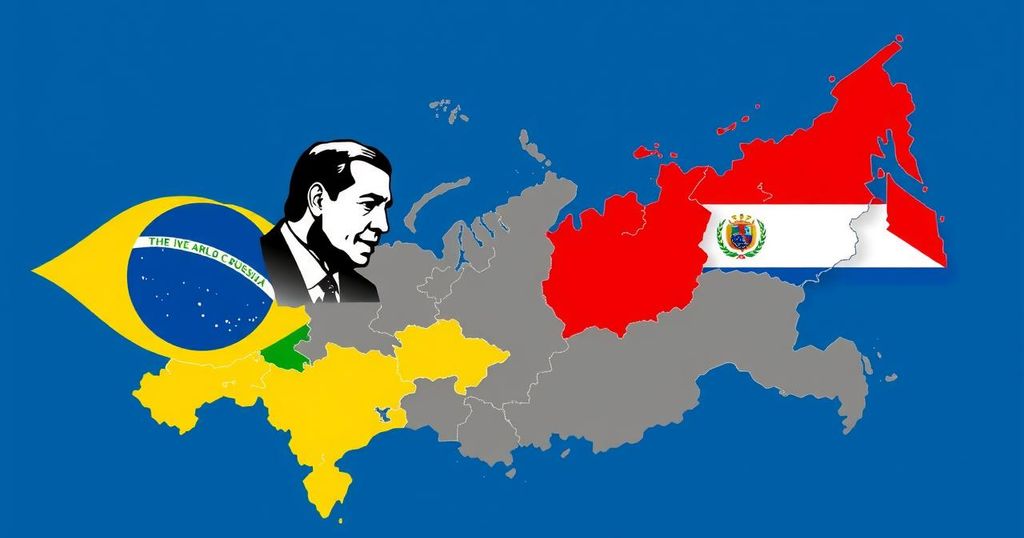Challenges at the BRICS Summit: Cancellations by Brazilian and Cuban Leaders

The BRICS summit in Russia, led by President Putin, is marked by the cancellation of attendance from Brazilian President Lula da Silva and Cuban President Miguel Diaz-Canel, due to health and energy crisis reasons. The summit is significant for showcasing BRICS as a counterbalance to Western power, coinciding with the group’s recent expansion to include four new members.
The recent BRICS summit, hosted by President Vladimir Putin in Russia, encountered a notable setback as leaders from Brazil and Cuba announced their cancellation of attendance. Kremlin presidential aide Yury Ushakov communicated on October 21 that both Brazilian President Lula da Silva and Cuban President Miguel Diaz-Canel would not participate due to unforeseen circumstances. President Lula da Silva, aged 78, reportedly sustained a minor brain hemorrhage following a fall at his residence over the weekend and will instead participate remotely via videoconference. Meanwhile, President Diaz-Canel faces serious energy issues, which have prevented his attendance. BRICS, which includes Russia, China, India, and Brazil among others, represents a coalition of emerging economies that often positions itself as a counterbalance to Western influence. At the commencement of 2024, BRICS welcomed four new members: Egypt, Ethiopia, Iran, and the United Arab Emirates, marking the first expansion of the group since the addition of South Africa in December 2010. In a recent development, Cuba has formally requested to join BRICS as a “partner country”, as stated by a Cuban Foreign Ministry official on October 8. As Russia faces increasing international isolation and seeks support from allies such as North Korea, the Kremlin aims for the summit, which commenced on October 22, to convey a message of enduring influence to Western powers. Official statements from the Kremlin have characterized this meeting as one of the most significant foreign policy events ever conducted in Russia.
The BRICS group, comprising some of the world’s leading emerging economies, has often positioned itself against the backdrop of Western dominance in international affairs. This summit not only serves as a platform for dialogue among its member nations but also represents an opportunity for Russia to bolster its international standing amidst ongoing geopolitical tensions and isolation. The participation of key leaders is essential to the dialogue, and the cancellation of attendance by influential figures such as Presidents Lula da Silva and Diaz-Canel raises questions regarding the effectiveness of the gathering. Additionally, the recent expansion of BRICS signifies a shift in the global economic landscape, highlighting the group’s growing relevance.
The BRICS summit hosted by President Putin faced significant challenges with the absence of leaders from Brazil and Cuba due to pressing health and logistical issues. While the summit is projected to illustrate the resilience and cooperative ambitions of emerging economies, the cancellation of these key leaders casts a shadow on its proceedings. The ongoing developments of BRICS as a counterweight to Western influence will be keenly observed in light of these changes and the shifting global dynamics.
Original Source: kyivindependent.com








